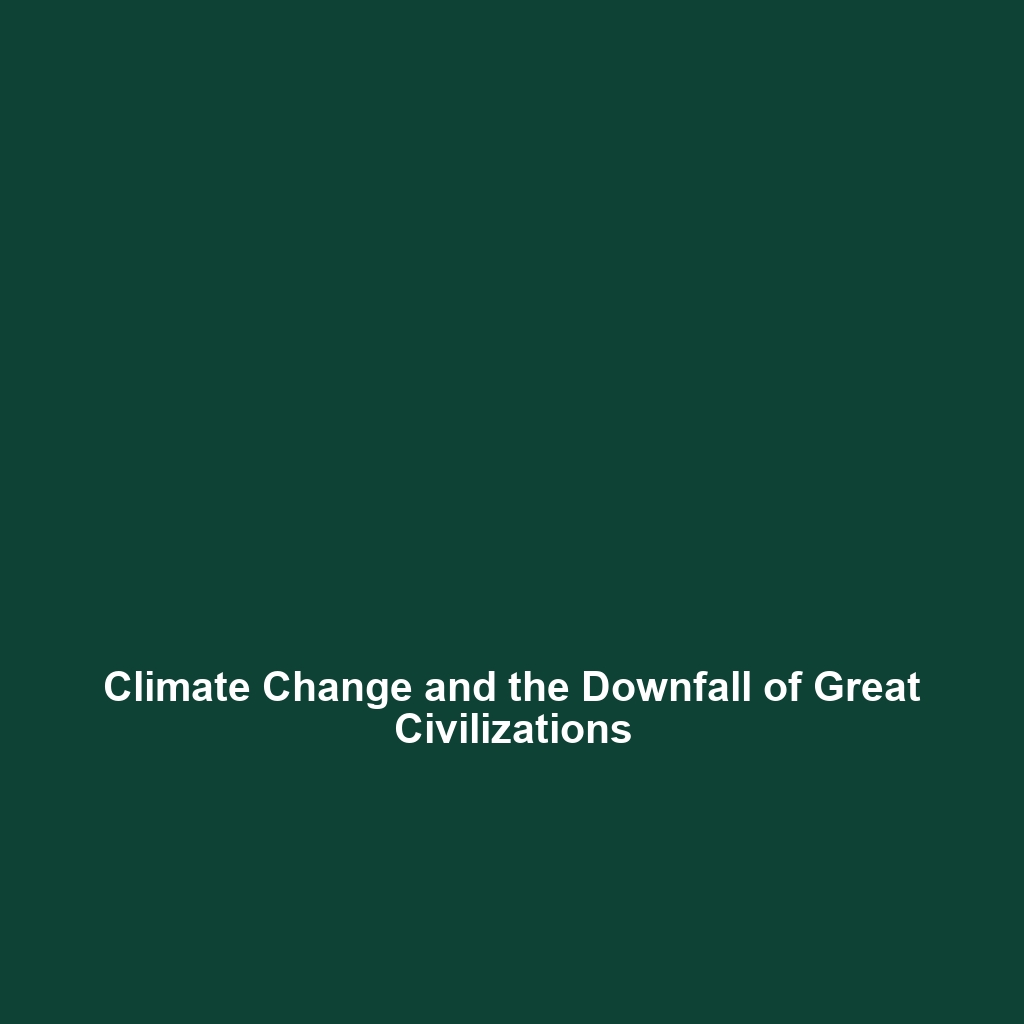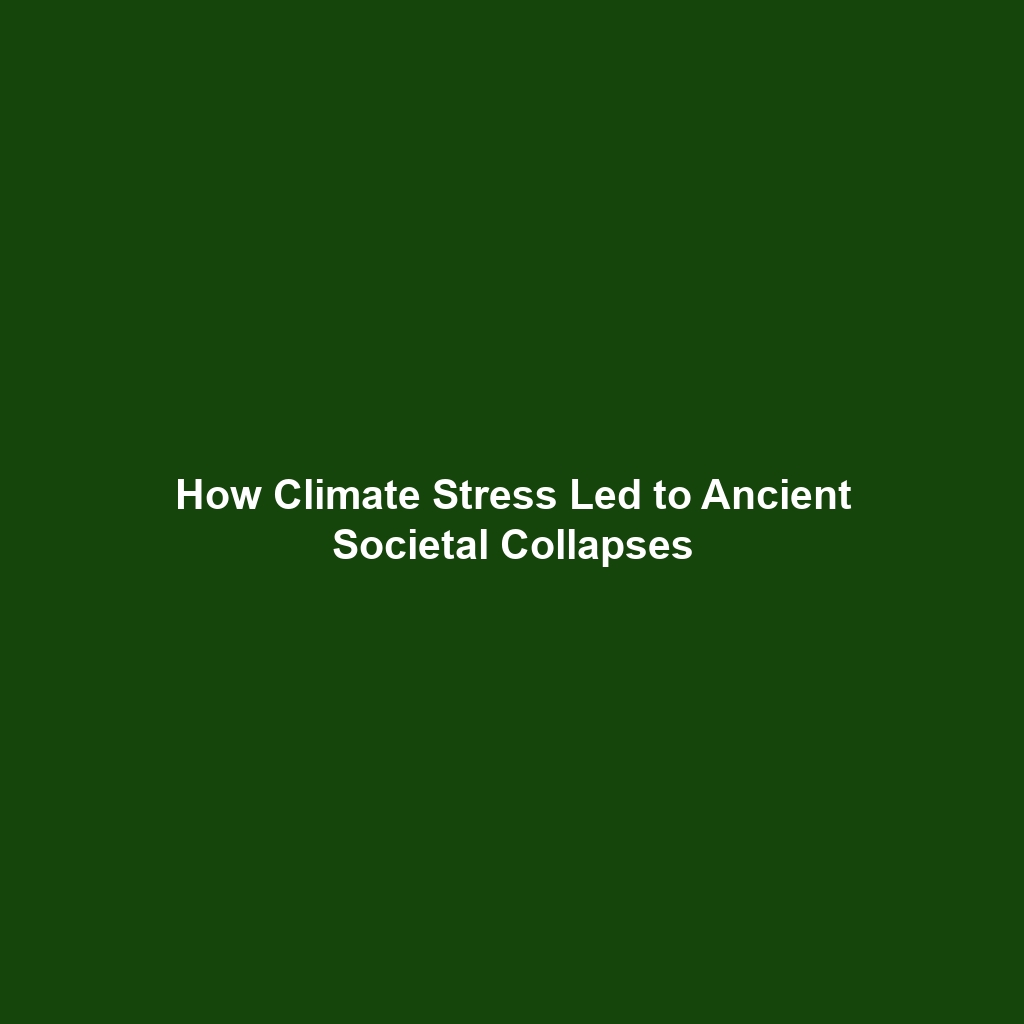How Climate Changes Have Contributed to the Fall of Empires and Civilizations
Introduction
Throughout history, significant climate changes have had profound impacts on civilizations and empires, leading to their decline and collapse. Notable examples include the Roman Empire and the Angkor civilization in Cambodia, where climatic shifts played a crucial role in their downfall. Understanding these historical events is vital within the broader context of Climate History as it reveals the intricate relationship between environmental factors and social stability. This article delves into the factors linking climate changes to the fall of civilizations, shedding light on their relevance to contemporary society and future implications.
Key Concepts
The Role of Climate in Civilizational Stability
Climate acts as a foundational element influencing agricultural productivity, political dynamics, and social cohesion. Major concepts to consider include:
- Resource Scarcity: As climates shift, essential resources such as water and arable land become scarce, leading to societal stress.
- Migration Patterns: Adverse climate conditions often force populations to migrate, disrupting trade and economic stability.
- Technological Vulnerability: Societies heavily dependent on certain agricultural techniques may suffer when unexpected climatic changes occur.
Historical Examples
The Roman Empire faced a series of droughts and cooling periods that led to food shortages, contributing to civil unrest and economic decline. Similarly, the Angkor civilization experienced severe flooding and drought cycles that undermined its complex irrigation systems, leading to its eventual collapse. These examples illustrate how climate history is essential in understanding the rise and fall of empires.
Applications and Real-World Uses
Understanding how climate changes have contributed to the fall of empires can provide significant insights for current environmental studies and policies. Notable applications include:
- Climate Resilience Planning: Insights from past civilizations can inform modern approaches to enhance community resilience against climate-induced challenges.
- Policy Development: Effective policies can be formulated to mitigate the risks associated with climate change, inspired by historical precedents.
- Historical Analogies: Contemporary societies can learn from the failures of past civilizations, applying lessons about resource management and adaptability.
Current Challenges
Studying the impact of climate changes on the fall of empires poses several challenges:
- Lack of Comprehensive Data: Many historical records are incomplete or biased, making it difficult to draw definitive conclusions.
- Complex Interactions: Various factors, including social, political, and economic conditions, interact with climate variables, complicating analysis.
- Public Engagement: Raising awareness about historical lessons in contemporary contexts remains a challenge, impacting proactive measures against climate change.
Future Research and Innovations
Future research in this field is essential to deepen our understanding of climate impacts on civilizations. Anticipated innovations include:
- Climate Modeling Advancements: Improved models simulating historical climate events can enhance accuracy in predicting future climate impacts.
- Interdisciplinary Studies: Collaborative efforts between climatologists, historians, and archaeologists may yield richer insights into the socio-environmental dynamics of past civilizations.
- Technological Tools: Utilizing big data and AI to analyze historical trends in climate and civilization interactions will aid in identifying potential future scenarios.
Conclusion
In summary, climate changes have played a pivotal role in the fall of significant empires and civilizations such as the Roman Empire and the Angkor civilization. Understanding these historical events provides critical insights into contemporary climate challenges and underscores the necessity for sustainable practices and policies. For further reading on this topic and its relevance within Climate History, explore articles on the impact of climate on society and strategies for climate change adaptation.

